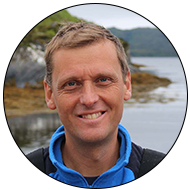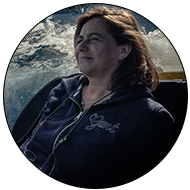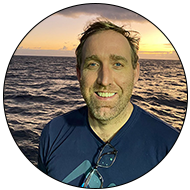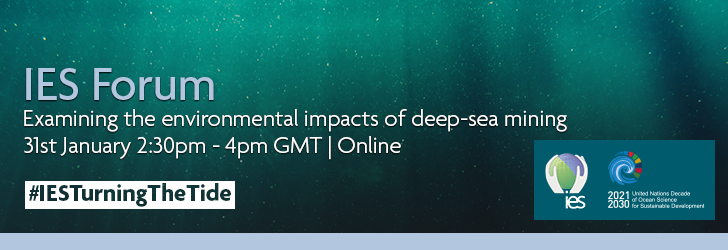There is growing interest in deep-sea mining - the process of extracting mineral resources from the seabed in areas of the deep ocean. Research suggests deep-sea mining could severely harm marine biodiversity and ecosystems, but there is still much that we don’t know about the specific impacts on deep-sea biodiversity.
In this event, we'll hear about work being done in this area through the iAtlantic project. The iAtlantic project is undertaking detailed research into the potential effects of deep-sea mining on ecosystems both in the water column and at the seafloor, using experimental approaches to determine organisms’ response to mining impacts such as increased sediment particles in seawater and metal toxicity. As climate change is a significant factor in today’s changing ocean, their research also takes into account the synergistic and potentially cumulative effects of a warming ocean on ecosystems coming under stress from mining activities. This session will take a look at the latest research results and their implications for the development of policies to regulate deep-sea mining activities.
A Q&A session with the audience will follow the speakers' presentations.
This event has been organised as part of our Turning the Tide: systems thinking for a sustainable ocean project, which has been endorsed as a UN Ocean Decade Activity. Join our dedicated mailing list to stay up to date on future project activities and hear about ways to collaborate.
This online event is free to attend and open to all.
Our speakers
 Murray Roberts is Professor of Applied Marine Biology & Ecology at the University of Edinburgh’s School of GeoSciences. He leads the Changing Oceans research group and coordinates the European Horizon 2020 iAtlantic project. In 2022 was appointed a Sargasso Sea Commissioner and member of the Scottish Science Advisory Council to government. He studies marine ecosystems in a changing ocean, focussing on structural habitats such as cold-water corals in the deep ocean. He has published 106 peer reviewed publications, is senior author of the textbook ‘Cold-water Corals’ and has generated £22.72M in research funding.
Murray Roberts is Professor of Applied Marine Biology & Ecology at the University of Edinburgh’s School of GeoSciences. He leads the Changing Oceans research group and coordinates the European Horizon 2020 iAtlantic project. In 2022 was appointed a Sargasso Sea Commissioner and member of the Scottish Science Advisory Council to government. He studies marine ecosystems in a changing ocean, focussing on structural habitats such as cold-water corals in the deep ocean. He has published 106 peer reviewed publications, is senior author of the textbook ‘Cold-water Corals’ and has generated £22.72M in research funding.
 Marina Carreiro Silva co-leads the Azores Deep-sea Ecology research group. Her research interests focus on the diversity, spatial distribution and functioning of cold-water corals, and their ecophysiological responses to climate change and human activities (e.g. fishing, deep-sea mining) under ex-situ experimental conditions. She has translated these research outputs into policy advice for the protection of deep sea vulnerable marine ecosystems by working closely with the Regional Government of the Azores and through international deep-sea working groups. Marina has over 60 ISI publications in her field of expertise.
Marina Carreiro Silva co-leads the Azores Deep-sea Ecology research group. Her research interests focus on the diversity, spatial distribution and functioning of cold-water corals, and their ecophysiological responses to climate change and human activities (e.g. fishing, deep-sea mining) under ex-situ experimental conditions. She has translated these research outputs into policy advice for the protection of deep sea vulnerable marine ecosystems by working closely with the Regional Government of the Azores and through international deep-sea working groups. Marina has over 60 ISI publications in her field of expertise.
 Andrew Sweetman is the leader of the Seafloor Ecology and Biogeochemistry research group at the Scottish Association for Marine Science (SAMS), UK. Andrew is an expert on seafloor biodiversity and ecology and has a strong focus on the impact of anthropogenic stressors on shallow and deep-sea benthic ecosystems. Over the last 12 years, he has undertaken research on diverse topics including the effects of mine-tailings deposition, impacts of massive sulphide and polymetallic nodule mining on deep-sea ecosystems, and the synergistic nature of climate change stressors on shallow and deep-ocean systems.
Andrew Sweetman is the leader of the Seafloor Ecology and Biogeochemistry research group at the Scottish Association for Marine Science (SAMS), UK. Andrew is an expert on seafloor biodiversity and ecology and has a strong focus on the impact of anthropogenic stressors on shallow and deep-sea benthic ecosystems. Over the last 12 years, he has undertaken research on diverse topics including the effects of mine-tailings deposition, impacts of massive sulphide and polymetallic nodule mining on deep-sea ecosystems, and the synergistic nature of climate change stressors on shallow and deep-ocean systems.

Matthew Gianni is an independent consultant, advisor and advocate for marine conservation based in the Netherlands. He is a co-founder of the Deep Sea Conservation Coalition and currently serves as its Political and Policy Advisor. He has been involved in international fisheries, deep-sea mining and marine conservation policy, law and treaty negotiations for almost 30 years at the United Nations, regional fisheries management organisations and the International Seabed Authority. Matt has authored or co-authored a number of papers and reports on fisheries, marine biodiversity, seabed mining and oceans governance for science and policy journals, the UN FAO, IUCN, governments and NGOs.


